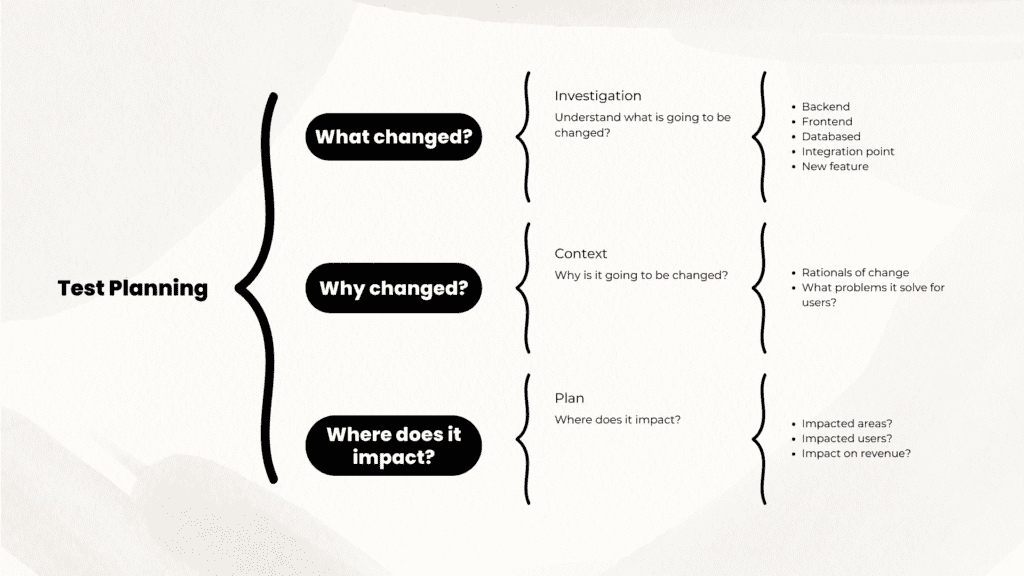Effective software testing relies on your understanding of the context of code change. To get the detailed understanding of the context, it is crucial for you to ask right questions to the right people at the right time. Without the context, you may not be able to design effective test scenarios.
In absence of effective test scenarios, you might not be able to add valuable feedback to the team which is expected from QA. Ultimately, team will loose confidence over testing process, Product owner may raise questions against quality of software. So questing is not only important for gaining the deep insight but very crucial to ensure that the delivered software meets the expectations of every stakeholder.
My approach of testing always begins with asking questions to different people involved in the decision making process. This gives me deeper insights in understanding the reasons for change.
I ask question to my tech lead & architect to understand, how they are planning a code change to accommodate the new business requirements.
I ask questions to product owner about, how the planned change going to solve problem for our users. This gives me an understanding about the problems being faced by the customers.
In this blog, I will share what are these fundamentals questions which you should ask before you commence your testing.
[Read why exploratory testing is still worthwhile in 2024]
[Read why assumptions in software testing is not recommended]
Fundamental Questions for QAs to ask

What Changed?
The initial question you must ask to your Product Owner. What changes are being planned? To gain the detailed understanding, this question can be further broken into smaller questions like:
- What specific components are being modified? (e.g., database, backend, frontend, or other system services)
- What alterations affect the system’s state pathways?
- Are any new end-user features being introduced?
- What problem does this change solve for end users?
Why Changed?
It is equally significant is understanding the rationale behind the changes. You should be able to comprehend the issues customers were facing that led to this decision. Without knowledge of user’s pain points, as a QA, you cannot ensure whether the change effectively addresses them. To further break this questions, you can ask these follow up queries:
- What specific issues or pain points were stakeholders experiencing prior to this change?
- What are the anticipated benefits or improvements expected from implementing this change?
Where Does it Impact?
Where does it impact, this most important question for effective testing planning? You should be able to identify the impacted areas as early as possible. By pinpointing the areas impacted, you can design test scenarios that comprehensively cover these changes.
In summary, you as a QA, should have all required knowledge with you to effectively design the test scenarios. You may tweak these questions based on your system and situation but it is necessary for you to get them answered as early as possible to ensure your testing is efficient and effective.
Thank you for reading this post, don't forget to subscribe!
No responses yet